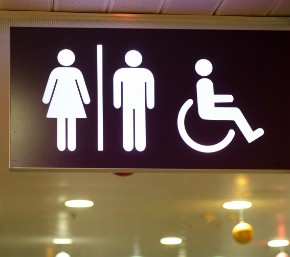Phantom threats

In recent weeks, North Carolina passed a law requiring transgender people to use the public restrooms of the gender listed on their birth certificates. Legislators in Tennessee, Kansas, South Carolina, and Minnesota are considering similar measures. (Another bill with that intent passed the legislature in South Dakota but was vetoed by the governor.)
Meanwhile, legislators in Georgia approved a bill that would allow business owners to refuse to cater same-sex weddings or other events that violate their religious beliefs. And Mississippi passed a law protecting the rights of pastors not to perform same-sex ceremonies.
Besides representing a backlash against the movement for equality for LGBTQ people, these legislative efforts have this in common: they are solutions in search of a problem. In vetoing the bill passed in Georgia, Governor Nathan Deal said he was not aware of any examples of situations in the state that required such protections.




